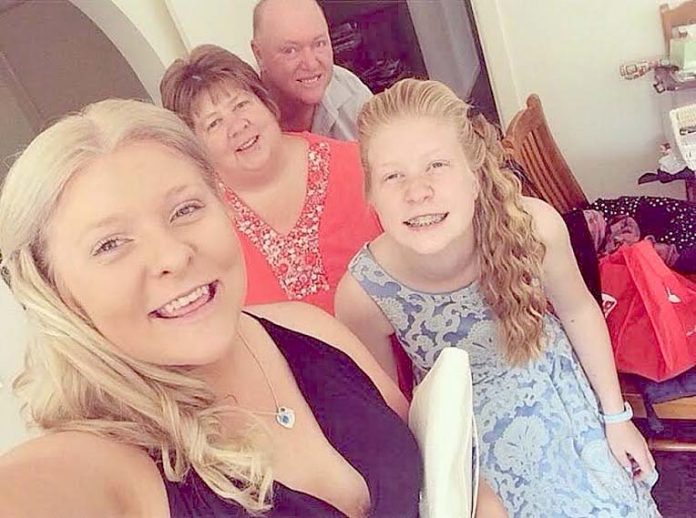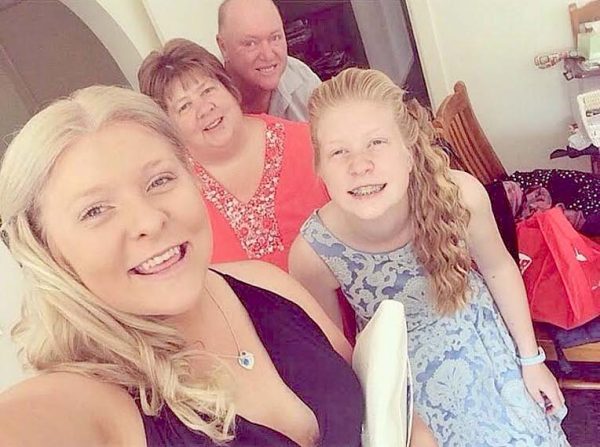

AFTER struggling with ongoing mental health issues, Mark Williams decided to reach out and seek professional help.
The devoted father and husband from Penola was put on the wait list to see a counsellor and six months later received a phone call with an appointment offer.
However, for Mark, it was too late – he had already taken his own life.
Four years later, his daughters Lucy and Kelli, and wife Anne-Marie, are committed to breaking the silence and stigma surrounding suicide and mental health.
Winding back the clock to the day she lost her father to suicide, Lucy said it was like a “really, really bad movie”.
“I did not believe it for a while and I learnt a lot that day,” she said.
“We were at my aunty’s house the day Dad died and it was the worst thing not knowing what was happening with him.
“I am sure after Mum told me I went into shock, it was like a really, really bad movie.”
Lucy added in the lead-up to her father’s death, she was unaware of the severity of his mental illness.
“I did not know what mental health was until the day Dad passed away,” she said.
“He put a mask on for me, which was bright, normal and happy Dad.”
After Mark’s death, Lucy, Kelli and Anne-Marie moved out of their family home as it was a constant reminder of the heartbreak they were enduring.
However, despite their heartbreak and loss, they were determined to find a positive in the negative situation and have done exactly that, bringing to life a workshop called “Teenage Trifecta” based on their experience to help others.
“After Dad’s death, my family decided to make a change and turn this negative into a positive to make sure no family goes through what we experienced,” Lucy said.
“I personally wanted to change something and not hide behind the curtain, I did not want to be ‘poor me’ feeling sorry for myself.”
The idea of The Teenage Trifecta snowballed from a school project topic relating to “something that impacts your local community”.
Lucy said while many of her peers looked into coaching, she decided to go down a different path and focus on a subject she was passionate about, which has also affected her personally.
She contacted a counsellor in Adelaide who jumped on board and joined forces with the Williams sisters and after some brainstorming The Teenage Trifecta was born.
The interactive workshop aims to create solid foundations for a teenager’s mental health and well-being and focuses on an audience of teenagers, their parents and guardians.
The Teenage Trifecta does this by delivering three different workshops – which complement each other – and are hosted by a counsellor, an expert nutritionist and a personal trainer.
“These workshops also aim to remove the stigma surrounding mental health and create conversation,” Lucy said.
“It is important people talk openly about mental health issues within our local area.”
Around 60 parents and teenagers attended the workshop in Penola and Lucy said the response was overwhelming as she only expected “a couple of people” to turn up.
Following the workshop, Lucy and Kelli attended the Trailblazers Lab at the Heywire Summit in Canberra.
For Lucy, the biggest issue surrounding mental health and suicide in rural areas is the stigma and she encourages people to openly talk about both so they become a “normal” topic of conversation.
“It is a big battle with mental health and it will always be a big battle with suicide prevention and talking about it,” she said.
“One key idea to prevent suicide and mental health problems in my opinion is to talk about and to generally ask how are you going to the people closest to you and also others – it may be hard at first, but keep at it.
“Talking is important even if you are not a trained professional, the first step is to talk to someone and then work it out from there.
“Our family motto is a problem shared is a problem halved.”
She added changes needed to be made to mental health services in rural communities, including funding for more counsellors, minimal waiting time and phone calls to check-in with people who have a mental illness.
While life may be hard without her father, especially when the family reaches milestones, Lucy is dedicated to turning the negative situation into a positive.
She is currently in her first year studying psychology at Geelong and would like to expand the Teenage Trifecta workshops across the state.
“My Dad would be very proud and happy that my family and I are doing something about mental health,” she said.
“He would also be pleased we are getting on with our lives as best we can.
“My Dad was caring and he would do anything for anyone – he was a real family-oriented man.
“He used to fix everything, which is something I really miss now.
“I was his little girl, we were always together.
“My life changed from that day, but I was very lucky to have the huge support I did to help me through.”
Contact Lucy at thetrifectaforyouth@gmail.com for more information about the Teenage Trifecta.
Lucy will be a guest speaker at the next meeting of the Wattle Range Suicide Prevention Network at the Penola Visitor Information Centre on Thursday, September 6, from 6pm.







